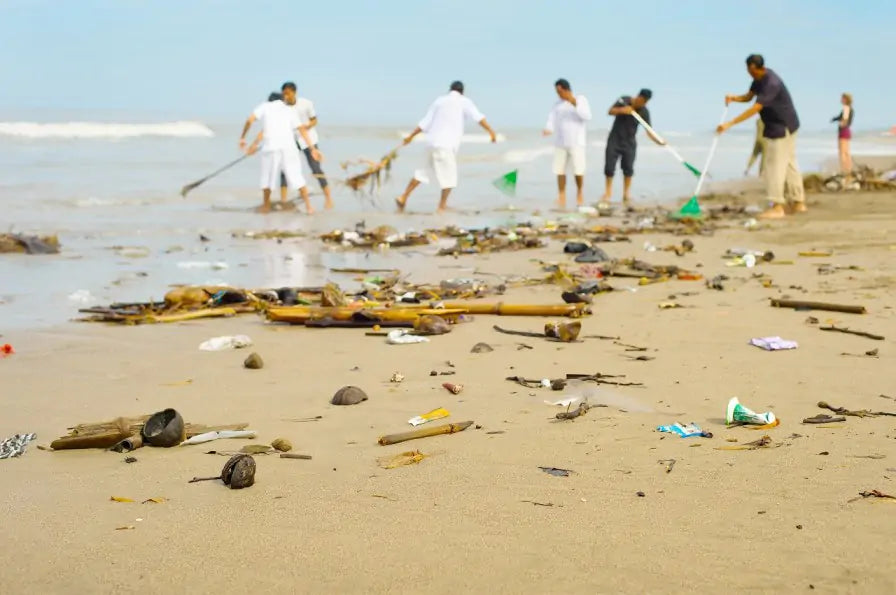OR
Express Checkout

How many people do you see walking along the beach, or spending a day there in the summer, then mindlessly discarding their litter? They assume that someone else will clear it up or it will just get washed out to sea and there’s no problem. But there is a problem, and it’s getting worse.
Rubbish on UK beaches has increased by a third, and it continues to do so, year upon year. Welsh beaches had the highest amounts of litter, followed by England. Northern Ireland and Scotland’s beaches had less litter overall. A survey carried out by the Marine Conservation Society found that there was an average of 2,195 pieces of litter per kilometre on UK beaches, a whopping 110% rise since the mid-nineties.
The problem of waste on the beach
What kind of waste ends up on the beach?
Plastic is the most common litter that ends up on our beaches, followed by shards of glass. However, litter pickers working on behalf of the Marine Conservation Society found many more different kinds of rubbish including crisp packets, sweet wrappers, cotton buds, cigarette stubs and fishing nets. Not to mention some more bizarre items such as a colostomy bag, a piping gun nozzle and 9 pairs of shoes!
Where does it come from?
More than a third of litter on beaches is dropped by the public. The rest comes from fishing, sewage, and shipping.
Most problematic waste
Wet wipes
Wet wipes are commonly flushed down toilets and as a result they end up on our beaches. Wipes don’t break down readily, so they block the sewer system and are washed into the sea. This can also cause overflow of sewage into the sea.
Plastic
The numbers of plastic bottles found on UK beaches has increased by 43% since 2014. As well as littering the beaches and making them look less than pleasant, the plastic has terrible effects on wildlife who can ingest the plastic or get trapped in it.
What is being done?
The government and environmental groups have highlighted the need for people to take responsibility for disposing of their litter correctly.
Schemes such as deposit return systems for plastic and glass bottles are being considered, so people would get money for returning their bottles to the shop. This makes the bottles worth something, so they are less likely to be discarded. Such schemes in Germany, The U.S. and Australia have been successful in reducing litter.
What can you do?
The main thing you can do is use provided litter bins for your rubbish, and if one is not available, keep the rubbish in your pocket or handbag until you find a bin or until you get home.
Get involved in a local beach clean up to help keep your local area clean and tidy.
Don’t flush anything apart from loo roll down the toilet. Cotton buds and wet wipes contain plastic and block sewage systems.